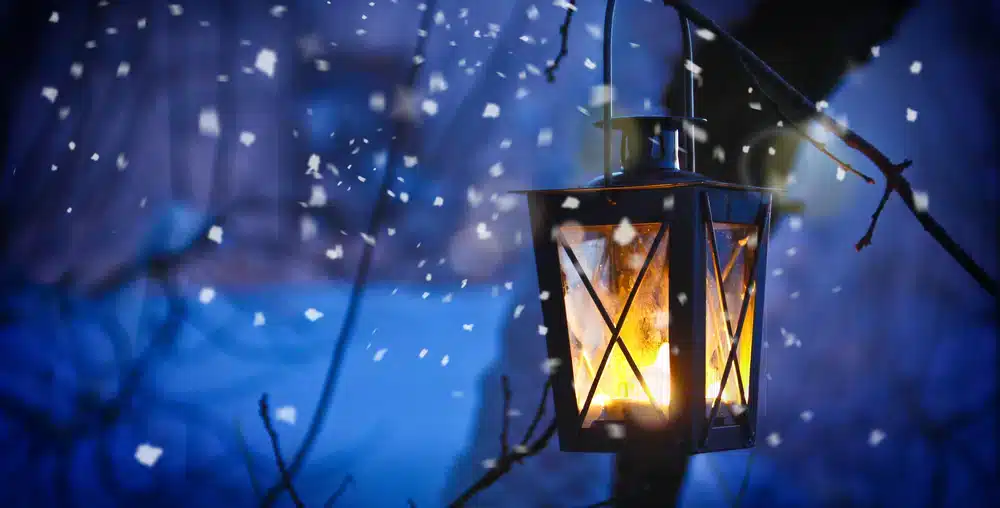The Light of the Night

Written by Mila Khyentse
Blog | Dzogchen practice | Reflections on life | What about me?
In this article, The Light of the Night, Mila Khyentse talks about the light in the darkness, the importance of the celebrations and their connection to our mind.
Christmas
The Christian world celebrates the birth of the Christ on the night of December 24th to 25th. This is a special night for many in the West. It is also a mystical night, not only for the children who wait excitedly for the foot of the Christmas tree to be magically covered with lots of presents and the help of Old Santa, but because it leads us back to something else.
In fact, this night was long considered one of the longest of the year, located around the winter solstice. In 274 ad, the Roman emperor Aurelian, who wanted to religiously unify the Empire, chose this date which was the conjunction of the end of the traditional Roman Saturnalia celebrations and the birth day of the solar deity of the mystery cults, Mithras. He named this festival the great festival of the cult of Sol invictus, the “undefeated sun”, to show the pre-eminence of light over darkness. This date will be retained in the 4th century by the Christian world, as being the “sun of justice” of a new era.
The mystery of the depths of the night
This night is one of the darkest, most mysterious of the year. It is a real mystery that is played out here: the reminder, the remembrance or the vigilance of the light in the darkest darkness. In the past, in the European countryside, going out in the middle of the night with a lantern in hand to attend midnight mass was considered a true mystical adventure, a unique experience in the year that reminded us of our human nature.
In the tradition of the Great Perfection, this reminder of the light in the darkness is a crucial experience that we strive to live, to experience, to apprehend… when we are ready to do so.

“We are fortunate to have these reminders still present in our cultures, even though many of us no longer really remember the deeper meaning of the celebrations. They allow us, even unconsciously, to make the link with what we are deeply, even if it is only one night a year…”
The Light of the Night
When the time is right, we withdraw from the world and lock ourselves in a totally dark room, without a single ray or source of light, and spend our days and nights meditating on our nature and its true aspect: light.
After a while, in the depths of the night, the darkness itself lights up and we find ourselves projected at the foot of the illuminated tree in the darkness. This is Christmas, the “good news”: the light is in the darkness. It is the Light of the Night.
We also know, as Dzogchen practitioners, that this experience is fundamental, because it is the one we will live for the last time at the moment of our death. To recognize at that moment the light in the darkness is to contemplate our true nature; and death is no longer death.
We are fortunate to have these reminders still present in our cultures, even though many of us no longer really remember the deeper meaning of the celebrations. They allow us, even unconsciously, to make the link with what we are deeply, even if it is only one night a year…
So let’s enjoy one of the longest nights of the year, and certainly the brightest.
